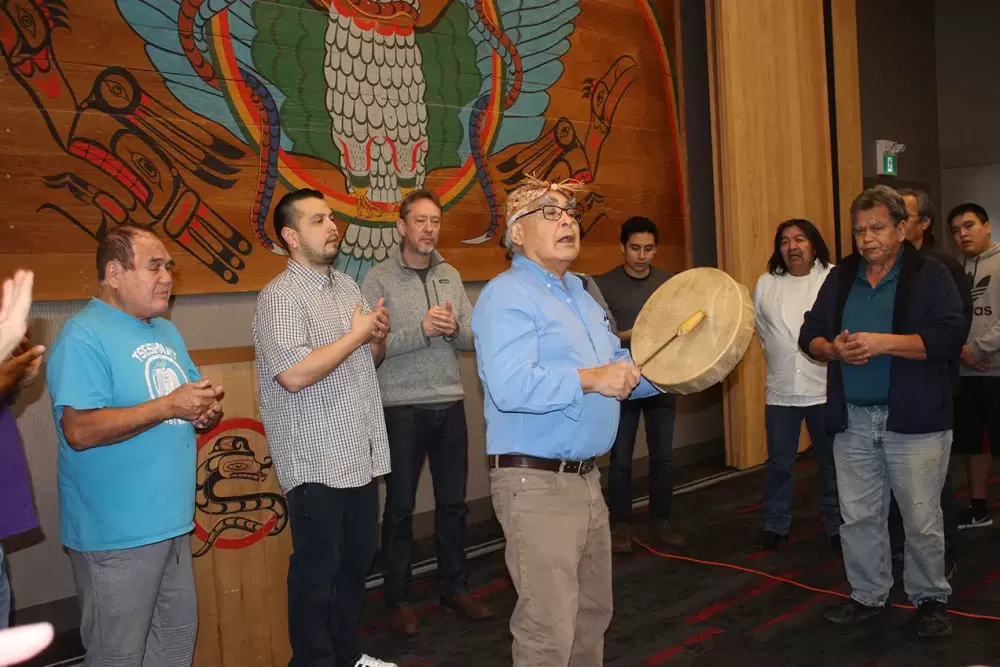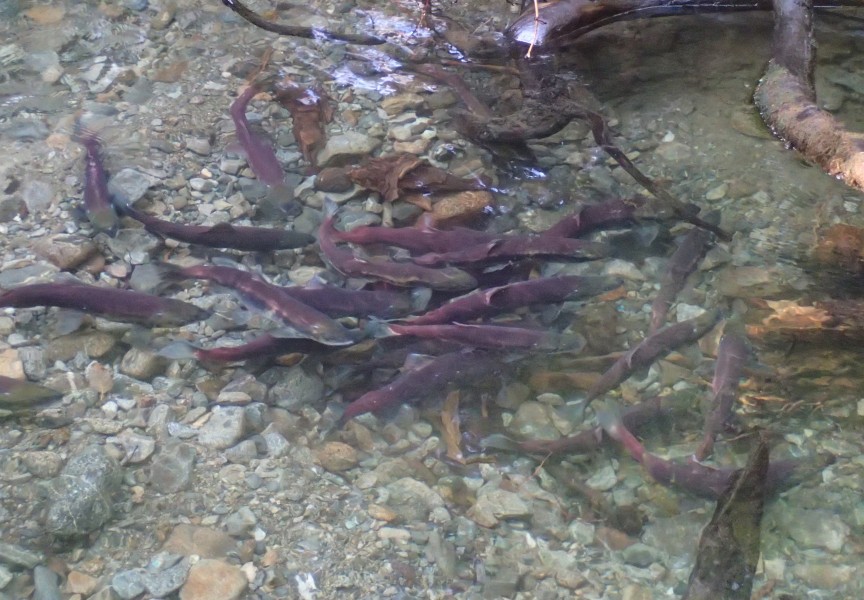The Nuu-chah-nulth Council of Ha’wiih heard more details about a federal bill that would bring changes to the Canadian Fisheries Act on Feb. 16.
Bill C-68 was introduced in the House of Commons on Feb. 6, 2018. The federal government introduced the bill as part of the Government of Canada’s review of environmental and regulatory processes. Their intent is restore lost protections and incorporate modern safeguards, provide better certainty for industry, ensure the long-term sustainability of marine resources and make sure that the Fisheries Act provides strong and meaningful protection of fish and marine habitat.
The Bill aims to modernize the Fisheries Act and aid in reconciliation with Indigenous Peoples.
In the review of highlights of the bill, NTC Fisheries Manager Eric Angel noted that the document takes into account Indigenous traditional knowledge, which he said was good, but it would have been nice if First Nations guardians were recognized resources in fisheries enforcement.
Hugh Braker, a Tseshaht councillor and the First Nations Fisheries Council member representing the west coast of Vancouver Island, says the bill was designed mostly to repair the damage of the previous Stephen Harper Conservative administration, but it has nothing substantive for First Nations. He recommended that the Ha’wiih demand that the Standing Committee come to Nuu-chah-nulth territory, “because this is where the people are most affected by the changes made in Ottawa,” he said.
He also recommended that the Ha’wiih begin lobbying federal MP Gord Johns to demand time before the Standing Committee. The Ha’wiih approved the recommendations.
Nadine Pinnell, Senior Fisheries Protection Biologist, as well as Michelle Vandermoor and Gabrielle Pang of DFO came to Tofino to present information about the Bill C-68. They noted that the bill was just introduced in House of Commons a few days ago. “We also have questions and we may not have all the answers as yet, but we will do our best to bring your questions forward,” said Pinnell.
NTC President Judith Sayers raised concern about terminology being used in the document and how it creates confusion. For example, there is a reference about Indigenous rights. “It is the individual First Nations that own the rights, not a body like the NTC,” she pointed out.
Other examples of weak language, such as ‘may’ and ‘consider’, used in the document were discussed. Pinnell said they are taking note of all the concerns raised.
“This is not a DFO process but a parliamentary process, however, DFO is being consulted for information,” Pinnell said.
Keith Atleo addressed the federal staff, telling them that DFO is on notice that Ahousaht declares it has not been consulted about these changes to the act. He went on to invite government officials to come to Ahousaht to consult with them about fisheries issues. “The word ‘may’ consult First Nations, ‘may’ recognize First Nations’ rights, is disheartening,” he said. He asked if they are wasting their breath around the table if the minister ‘may’ consider what the Ha’wiih are saying.
“For the last 100 years we have not been recognized for who we are and what we have in terms of our rights and title. There’s nothing really in there about rights and title. It’s hard to support something that doesn’t have any acknowledgement or benefit for our people,” said Atleo
Gerry Kelly, DFO Aboriginal Affairs Advisor, said he would bring the concerns back to government, saying they would form a basis for further discussion. “We now have a framework showing a willingness and commitment from this government to acknowledge First Nations,” said Kelly.
“We anticipate that we will be back to speak with you about the development of policy, program changes, and other changes coming as a result of this bill,” said Pinnell. “We’re not here consulting with you about this bill; we are here to outline what’s in the bill. Will be back to speak with you more about this in the coming months.”
Bill c-68 passed second reading in Ottawa on Feb. 13.







